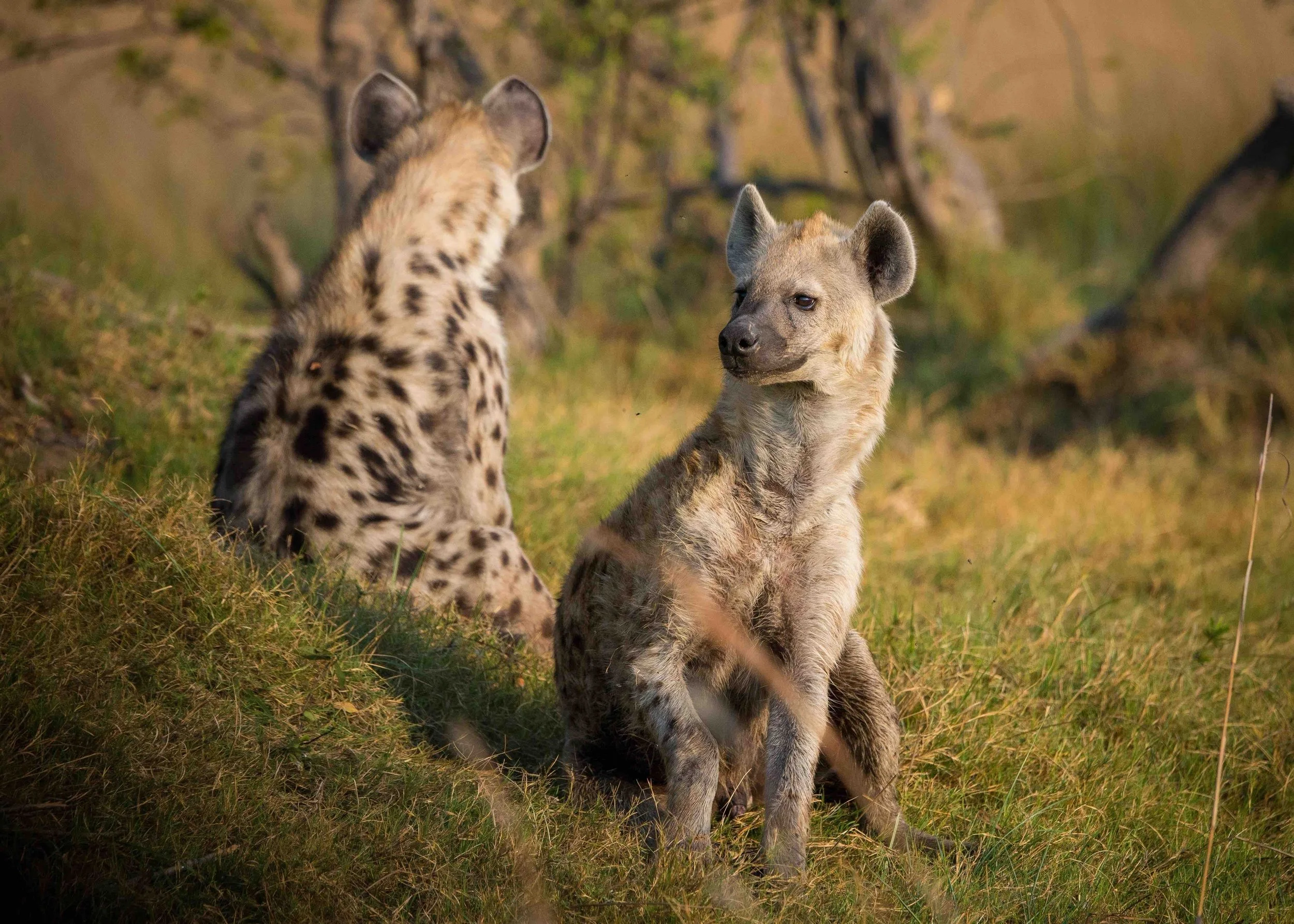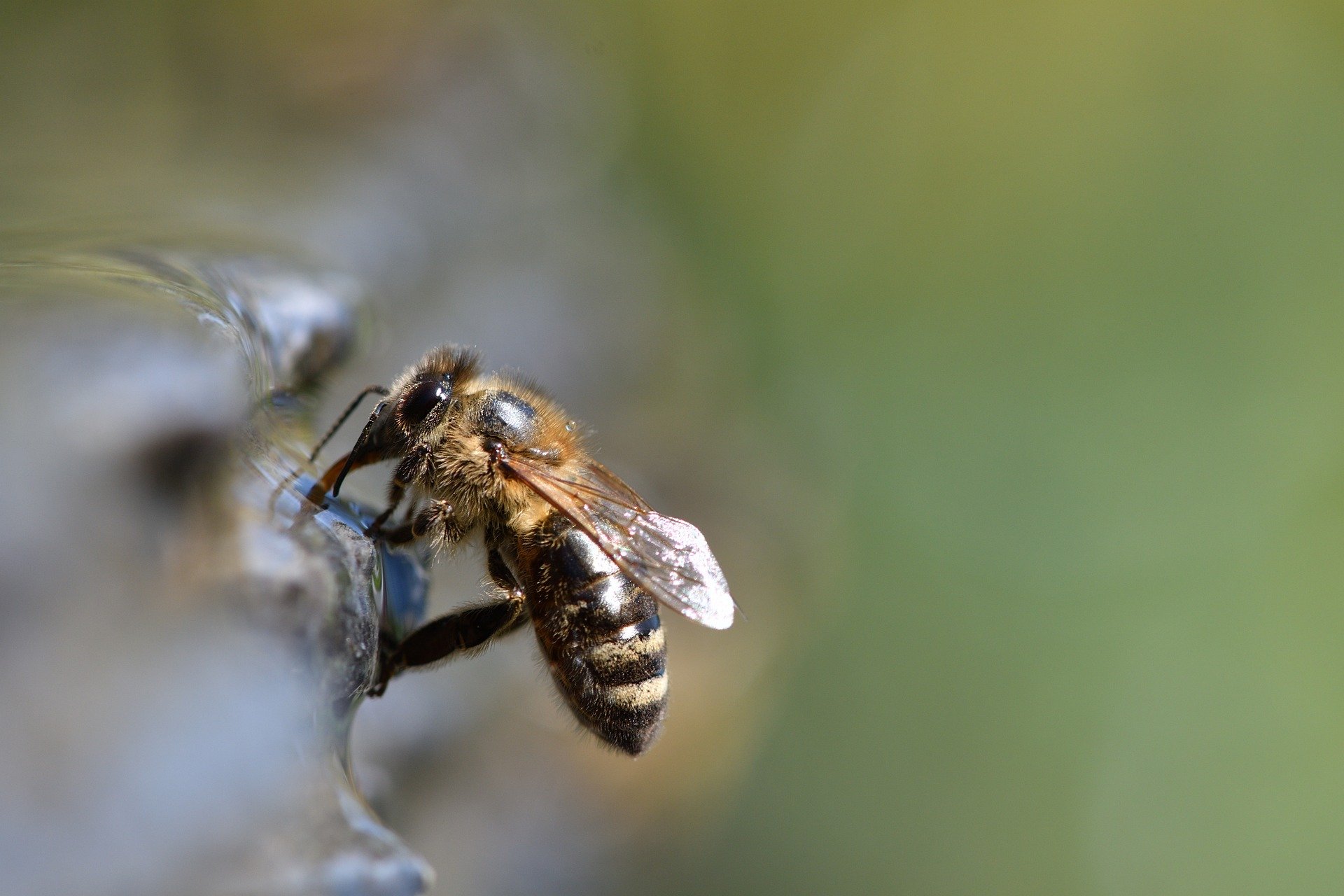Leading ladies!
As natural nurturers, mentors, and organisers of note, it’s no secret that females are excellent leaders too! In the animal kingdom, many species live in happy and harmonious matriarchal societies.
Shaba, Reteti’s first matriarch embracing a young orphan. Photo by Ami Vitale
Of these, elephants are probably the most well-known. Taking their lead from an experienced, older, and wise female, each elephant herd relies on a matriarch to guide them towards the best migratory routes, grazing, and water sources – while keeping them safe from all kinds of predators. The strong female leaders who have emerged as matriarchs at Reteti have been fulfilling even more roles – by caring for the orphans like mothers would!
This past Mother’s Day, we celebrated strong female leaders throughout the animal kingdom – from elephant matriarchs to meerkats and queen bees! Have a look at these interesting societies in nature, and how their matriarchies work:
Spotted hyenas
Living in clans of up to 80 members, spotted hyenas are the most social of all carnivores. They are led by alpha females, who also happen to be larger than the males – and do most of the hunting, while also raising their cubs! Males usually move around to join other clans and this system helps to promote genetic diversity.
Meerkats
Living in underground burrows, these lively little carnivores belonging to the mongoose family may seem cute, but it’s only fitting that a group is called a mob! Dominant females rule each group of 2-3 families with an iron fist, and studies have shown that these ladies are fuelled by testosterone – a hormone often associated with aggressive males. From leading everyone on foraging expeditions to finding new burrows, they even resolve disputes among the mobsters in their ‘hood.
Lions
If you think the “kings of the jungle” live in a set-up where the men-folk are solely in charge, you are sorely mistaken since they tend to stay at home guarding the dens – while the females set out to provide for the pride. Apart from being exceptionally strong, sleek, and fast, lionesses are master strategists, and their excellent teamwork is especially beneficial during hunts. Prides usually consist of females who are related – and they give birth at the same time, rear their offspring communally, and their cubs can suckle from any female with milk.
Bonobos
They may be much smaller than their male counterparts, yet female bonobos rule their social groups. Found only in the forests of the Democratic Republic of the Congo, these primates have an intricate system of alliances, and the females use strong bonds to gain dominance instead of relying on physical strength. They’re the only great ape species whose females take the lead – and also gang up against males who try to intimidate or harm them.
Honey bees
In the complex matriarchal society of bees, the queen is larger than all the others, lives longer, and is the colony’s reproductive powerhouse. But that doesn’t mean she’s got all the power… In fact, the hive’s decisions are made by the worker bees, who are all female. They even pick and raise their queen bee! They also clean the hive, collect pollen and nectar to feed the colony, and take care of the babies too. So it’s true: they really are busy bees! Male bees (drones) don’t make honey and they can’t sting. Their main purpose is to mate with queen bees, and they usually die soon after that.
Ants
At the heart of each ant colony, the queen is a winged, fertile female who is responsible for laying all the eggs and building the colony – while the rest gets on with the work. As highly social creatures, ants are known to show up in large numbers, and some species – like army ants – can live in groups of up to 700,000 adults! You obviously need a very sophisticated system to make things flow seamlessly, and theirs is based on a royal matriarchy. It’s clearly working because they have one of the most successful and cooperative societies – that we can all learn a thing or two from!
When you look closely, females play such an important role in the wilderness, which extends well beyond giving birth to the next generation and caring for their young! They are vital in everything from organising large numbers of followers to safeguarding and feeding their subordinates – as well as settling scores!







